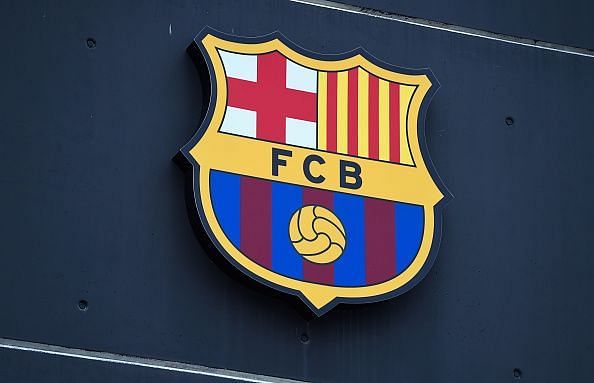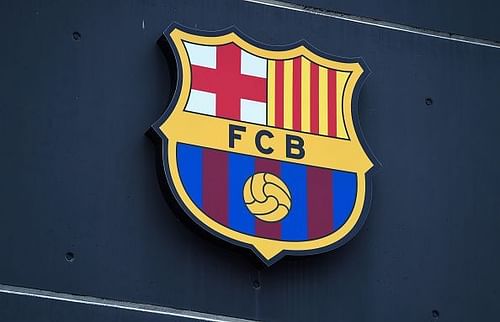
Are Barcelona on the verge of losing their identity and heritage?

In Spain, no club reflected the local area with greater pride and basked in their famous youth system more than FC Barcelona. Barcelona’s famed La Masia academy is often held up as a shining example of how a football club should mould its youngsters into not only fantastic footballers, but also as excellent sportsmen. This is the academy where a 13-year-old Pep Guardiola came to learn about the game and a certain Lionel Messi came from Argentina to develop into arguably the greatest ever player. The core of Barcelona’s team was of their own making. Whilst the likes of domestic rivals Real Madrid spent millions trying to assemble a team of Galacticos, Barcelona produced a side of home grown superstars.
Being a talented midfielder during his playing days, Guardiola’s prominence came when he was appointed as the manager of his boyhood club Barcelona in the year 2008. His success as Barca boss was owed much to the academy who developed him during his teenage years. Xavi Hernandez, Gerard Pique, Carles Puyol, Andres Iniesta, Sergio Busquets, Pedro Rodriguez, Victor Valdes, etc. were all schooled in La Masia, going on to play a part in not only Barcelona’s subsequent achievements, but also the Spanish national team’s.
The manner in which the La Masia graduates played the game was the key, showing extraordinary telepathic understanding on the pitch that had been honed by their growing up together. Of all the great sides over the years, it was no coincidence that Guardiola’s team revolutionised the way the game was played like nobody else. Under the management of Guardiola, Barcelona racked up 14 trophies from 2008 comprising of two Champions leagues, three La Liga titles, Two European Supercups, three Spanish Supercups, two Copa Del Reys and two FIFA Club World Cups. As a matter of fact, three La Masia graduates – Messi, Iniesta, Xavi – filled the top three places in the voting for the Ballon D’or in the year 2010.
After the departure of Pep Guardiola, Barcelona has still seen the emergence of several youngsters, with the likes of Munir El-Haddadi, Rafinha, Sergi Roberto, Gerard Deulofeu, Cristian Tello, Marc Bartra, etc. all making it into the first team. But no one went on cement a regular place in the starting line-up and there were doubts starting to come up among some critics as to whether today’s graduates have received too much too soon in the way of financial rewards.
This clearly doesn’t mean that money has not consistently been spent at Camp Nou, even during the golden era of success. Vast sums were splashed for the likes of Zlatan Ibrahimovic, Dani Alves, and David Villa from other big clubs. The Barca logic of developing a winning team by making stars of their own was greatly simplified. Big name signings from other clubs were only made to fill the gaps to complete the team.
However, their clarity in developing their own stars waned somewhat over the period of time since Guardiola’s departure as manager in 2012. The departure of Xavi in 2015 was mainly the beginning of changing times at Camp Nou. With a lack of faith in modern La Masia graduates to succeed Xavi in his role, Barca spent money on Ivan Rakitic as an answer to their creative needs.
The signings of Neymar and Luiz Suarez were very expensive financial outlays mostly to accommodate a better playing style with Lionel Messi. In the recent years, they have also signed Samuel Umtiti, Marc-Andre ter Stegen, and Andre Gomes for huge money to enhance their team from other clubs. The signings of Ousmane Dembele and Philippe Coutinho for exorbitant sums during the last year has further diminished their reputation of producing quality La Masia graduates in their first team.
Last season, their match against Celta Vigo contained something of a shock. For the first time in 16 years, Barcelona’s side did not feature a single academy graduate in their line-up.
This summer, the Spanish champions have signed three future stars for their club, with Malcom, Clement Lenglet and Arthur joining for rather high fees.
While it is very much necessary to catch up with the successes of rivals by investing in best talents from around the world for the development of their team, it is also worth valuing the club characteristic for the continuation of Barcelona’s ethos. From the fans’ perspective, anyone would love their club to continue their tradition and become successful with their own stars. Alas, it is a far cry from the times when Guardiola managed an era-defining successful team, a sign that Barcelona’s unique brand of unprecedented club identity is in decline.